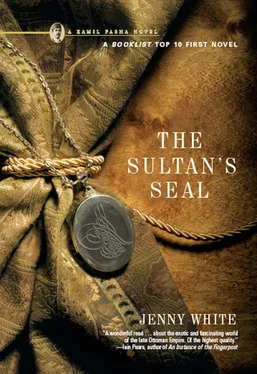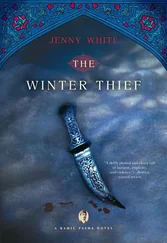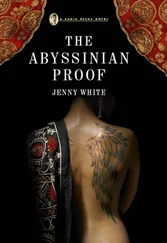Jenny White - The Sultan's seal
Здесь есть возможность читать онлайн «Jenny White - The Sultan's seal» весь текст электронной книги совершенно бесплатно (целиком полную версию без сокращений). В некоторых случаях можно слушать аудио, скачать через торрент в формате fb2 и присутствует краткое содержание. Жанр: Исторический детектив, на английском языке. Описание произведения, (предисловие) а так же отзывы посетителей доступны на портале библиотеки ЛибКат.
- Название:The Sultan's seal
- Автор:
- Жанр:
- Год:неизвестен
- ISBN:нет данных
- Рейтинг книги:5 / 5. Голосов: 1
-
Избранное:Добавить в избранное
- Отзывы:
-
Ваша оценка:
- 100
- 1
- 2
- 3
- 4
- 5
The Sultan's seal: краткое содержание, описание и аннотация
Предлагаем к чтению аннотацию, описание, краткое содержание или предисловие (зависит от того, что написал сам автор книги «The Sultan's seal»). Если вы не нашли необходимую информацию о книге — напишите в комментариях, мы постараемся отыскать её.
The Sultan's seal — читать онлайн бесплатно полную книгу (весь текст) целиком
Ниже представлен текст книги, разбитый по страницам. Система сохранения места последней прочитанной страницы, позволяет с удобством читать онлайн бесплатно книгу «The Sultan's seal», без необходимости каждый раз заново искать на чём Вы остановились. Поставьте закладку, и сможете в любой момент перейти на страницу, на которой закончили чтение.
Интервал:
Закладка:
Despite Michel’s abruptness, Kamil appreciates his direct answers, so different from the usual polite circumlocutions with which conversations are initiated. He finds that people often are afraid to tell him what they know, in case they are wrong. They also are afraid to say that they don’t know something. His teachers at Cambridge University, where he had studied law and criminal procedure for a year, assumed that when questioned, a person would answer with either truth or falsehood. They had no concept of Oriental politeness that avoids the shame of ignorance and shies away from the brutal directness of truth, and that encourages invention and circumlocution as the highest markers of ethical behavior.
Accuracy in a subordinate means sacrificing the buffer of respectful indirectness and obfuscation of problems that would have spared his superior from worry. But Kamil, laboring since his youth under the heavy mantle of his father’s status, is only too happy to shrug it off.
“I have the tools.”
Michel pulls a leather-wrapped kit from his belt and places it on the belly stone, at the head of the corpse. He takes a folder of thick blank paper from a saddlebag, and a narrow lacquered box from which he extracts a pen and several sticks of fine charcoal.
“Ready.”
“We’ll wait for the midwife. In the meantime, go to the street and see what you can learn. Was anyone traveling last night or out on a boat and did they see or hear anything? The fishermen mentioned barking dogs. Did anyone notice an unknown woman in the vicinity? Also, send two policemen along the shore north of here. Her clothes are missing and there may be some signs of a struggle. Perhaps someone heard something in one of the other villages near the shore. Have them check in the coffeehouses. That’s always the best way to learn anything. On your way out, clear the room of onlookers. Have them leave the lamps.”
Michel does as he is told and then is gone, leaving the door ajar.
A few moments later a woman in a frayed cloak appears in the doorway just inside the circle of light. Her head and shoulders are draped in a brown shawl. Slipping off her outer shoes, she pads softly across the marble on leather socks. She removes her cloak and shawl with swift, practiced motions, folds them neatly, and drapes them over a nearby basin. Underneath, she wears a striped robe over wide trousers and a kerchief tied around her graying hair.
“Are you the midwife of Middle Village?”
“Yes, my name is Amalia.” She averts her face modestly, but alert eyes sweep the room. Seeing the body on the marble slab, she comes forward.
“Poor woman.” She smoothes the hair gently away from the dead woman’s face.
“Is this as she was found?” She moves to the body and begins examining it. She is used to being in command of a situation and seems oblivious that she is sharing this activity with a magistrate.
“Yes. We need to know if she has been tampered with and anything else you can tell us. I will wait over here.”
He withdraws to the outer shadows and waits at a discreet distance, but where he can still see what she is doing.
The midwife’s practiced hands probe the body of the dead woman.
“A woman in her twenties, I would say. Not a virgin. She has not previously given birth; there are no signs of stretching.”
Kamil frowns. “Perhaps she killed herself over the loss of her honor and threw herself into the Bosphorus. She wouldn’t be the first girl to do so. Some of the Franks are as fastidious in their expectations of women as we are. If she is unmarried, it could ruin her.”
“Possible, I suppose.” Amalia moves her fingers over the dead woman’s face and pulls up her eyelids.
“Dark eyes.” She bends closer and then looks up abruptly. “Look at this, Magistrate bey. The eyes are blue, but the pupils are too large. There is only a small rim of blue visible. Perhaps she was drugged.”
Kamil steps forward and looks down at the woman’s eyes.
“What could cause the pupils to expand like that?”
“Apoplexy, but she’s far too young for a disease like that.” She thinks for a moment. “Many years ago, an old uncle in my family died of opium poisoning. He had such eyes. At the end, he was a bone with huge eyes, black like cups of coffee.”
Kamil feels chilled and plunges his hands into his pockets.
“Opium poisoning?”
She looks at him curiously, alert to a change in the quality of his voice. “Yes, but I don’t think that can be the case here.” She points at the body. “She’s too healthy. Opium addicts stop eating and taking care of themselves.”
“But maybe she just started smoking opium. Maybe it’s not that far advanced.”
“Then her eyes wouldn’t be dilated. That happens only at the end.”
“At the end,” Kamil repeats in a low voice. Abruptly, he walks over to one of the basins against the wall. He turns the spigot handle, releasing a gush of water. He quickly turns it back, but not before wetting his sleeve.
Amalia watches him carefully and reaches her own conclusions. “If there is anything-” she begins, but Kamil cuts her off.
“So if it’s not apoplexy or opium, may Allah protect us, what else can it be?”
“There’s one other possibility,” she says slowly, thinking her way toward the answer. “Tube flower.”
“Tube flower? Isn’t that for colds?” Kamil has a vague childhood memory of inhaling steam from a cup of viscous yellow liquid to quell a cough.
“Yes, it’s used as a cough medicine. The herbalists in the Egyptian Spice Bazaar sell it. But I’ve heard that drinking it makes people see and hear things that aren’t there, and can even cause death if it’s strong enough.”
Kamil is surprised. “Why on earth would they sell something like that in the bazaar?”
The midwife shakes her head at the ignorance of men. “You’re not supposed to drink it, just inhale or smoke it. You’d be surprised how many things in an ordinary household can cause death.”
“That would make our job endless.”
“It shows that people are not evil,” she responds, “and can resist temptation. Believe me, every house in this village has a motive for murder. All you need is a mother-in-law and daughter-in-law under the same roof. It’s a wonder tube flowers aren’t more popular.” She turns before Kamil can see the smile flit across her face.
Her face is serious again when she bends down and picks up the dead woman’s hand. She examines the palms and fingers, looks at the intricate clasp of the gold bracelet. The limbs move reluctantly. Rigor mortis is finishing what the crabs left undone.
“A lady. These hands have never worked the fields, scrubbed laundry, or labored in a kitchen. The nails are perfectly shaped, not cut straight across like those of women who must work in their households. They’re not torn, as they might be from a struggle. Indeed I see no marks on her that indicate she struggled. The skin is unmarked except for the effects of its passage through the strait.”
She steps back and looks at the body.
“Her hair is short. I don’t know the meaning of that. Among some minorities, women cut their braids when they marry. But there’s no wedding ring and no mark on her finger where it would have been.”
She turns her head toward him.
“She doesn’t appear to have been dead very long. The water has done little. I’ve seen fishermen and young boys who drowned in the Bosphorus and washed up in Middle Village. This young woman didn’t come very far.”
Kamil shifts restlessly. He scans the room in vain for Michel’s bundle, where he might find paper and ink to take notes. It was a mistake to send him out before the midwife’s arrival.
“Please continue. So you believe she drowned.”
Читать дальшеИнтервал:
Закладка:
Похожие книги на «The Sultan's seal»
Представляем Вашему вниманию похожие книги на «The Sultan's seal» списком для выбора. Мы отобрали схожую по названию и смыслу литературу в надежде предоставить читателям больше вариантов отыскать новые, интересные, ещё непрочитанные произведения.
Обсуждение, отзывы о книге «The Sultan's seal» и просто собственные мнения читателей. Оставьте ваши комментарии, напишите, что Вы думаете о произведении, его смысле или главных героях. Укажите что конкретно понравилось, а что нет, и почему Вы так считаете.












